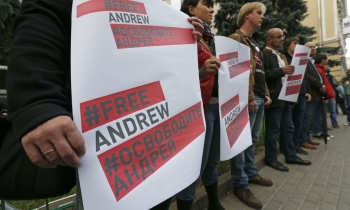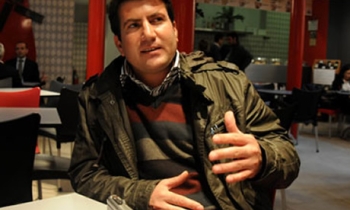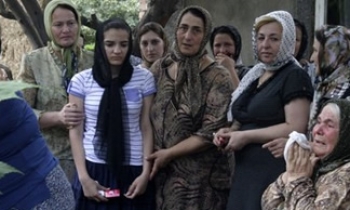A Tunis criminal court has dismissed a libel case against the editor of an online newspaper after the plaintiff decided to withdraw his complaint, delayed reports have said.
Charges of defamation had been leveled against Omar Mestiri, the editor of the online newspaper Kalima, by Tunisian lawyer Mohammed Baccar that could have led to his imprisonment for up to three years.
The suit was a result of Mestiri’s denouncement of Baccar’s reinstatement by the judicial bench. Baccar had earlier been convicted of fraud and forgery which had lead to his expulsion. The suit came as late as six months after the article’s publication on a website on a server in France, which is already banned in Tunisia since its very inception in 2000. The trial against Mestiri, which was postponed twice, on August 2 and August 28 was being seen as an arbitrary manipulation of law in order to check freedom of speech and expression.
Baccar withdrew the case on August 30, Reporters sans Frontières (RSF) reported.
This is not an isolated case of false implication of journalists by politically motivated forces in Tunisia. Lawyer and human rights activist, Mohamed Abbou was tried and sentenced on appeal in June 2005 to three and a half years in jail for exposing torture in Tunisian jails on the Internet, and for comparing the treatment of prisoners in Tunisia to conditions in Abu Ghraib prison. The release of Abbou along with 20 other political prisoners on July 24, just before the 50th Anniversary of the Proclamation of the Republic of Tunisia on July 25, was seen as a politically manoeuvered move, in order to softpedal the human rights inhibitions of official foul-play in the matter, according to members of the Tunisia Monitoring Group (TMG).
Tunisia was the first country in the region to enshrine limits on absolute power in 1861. It abolished slavery in 1846 and was the first Arab country to see the emergence of an Amnesty International section in 1988. The Tunisian Constitution categorically states the law that guarantees the right to criticise the government and freedom of speech and association. Yet the state of affairs by the powers has been nothing short of abominable for the National and international human rights groups who have been protesting over the past years following various unfair trials.
In June this year the Interior Ministry extended the arbitrary banishment and constant police surveillance of Abdallah Zouari, for 26 months. He had spent 11 years in prison and more than five years under virtual house arrest nearly 500 km from his wife and children. It is a testimony to the fact that political prisoners are continued to be harassed and those who have been released are denied the right to earn a living and freedom of movement, TMG members said.
Despite such alarming reports by local and international human rights groups and by Transparency International, which elevated Tunisia's ranking on its list of corrupt countries from 32nd in 2000 to 51st in 2006, Tunisia remains one of the best educated and socially advanced societies in Northern Africa. Ironically, it has been observed that countries like Algeria, Morocco, Mauritania or Egypt with higher rates of illiteracy, poverty, corruption and social injustice offer more room for freedom of expression than Tunisia.









